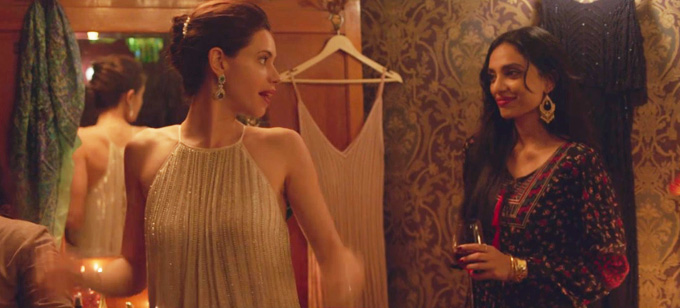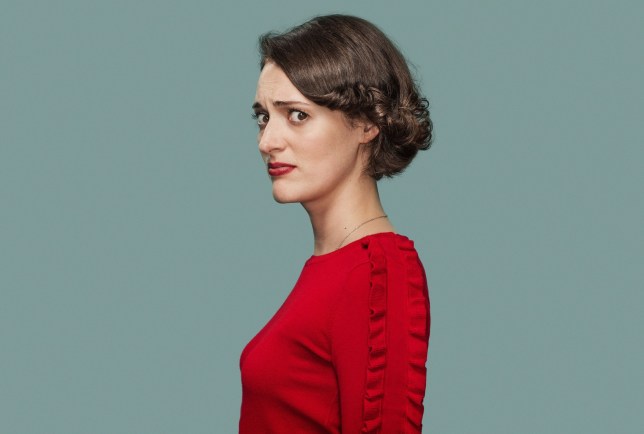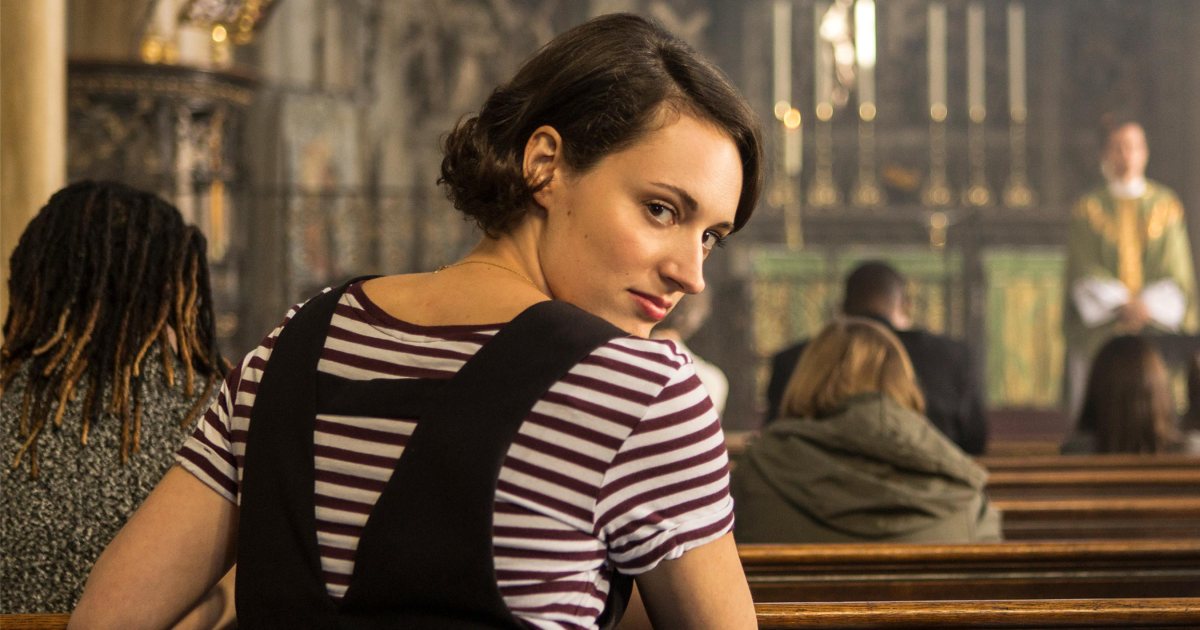There is a moment in the Emmy award-winning series when Fleabag, played by Phoebe Waller-Bridge, breaks down as she makes this confession to the Priest (played by Andrew Scott and better known as the ‘hot Priest’):
“I want someone to tell me what to wear every morning. I want someone to tell me what to eat, what to like, what to hate, what to rage about, what to listen to, what bands to like, what to buy tickets for, what to joke about, what not to joke about. I want someone to tell me what to believe in…I want someone to tell me how to live my life because so far [Father] I think I’ve been getting it wrong.”

It is a cathartic moment in a series which is otherwise marked by self-conscious irony and wry humour. It is an urgent plea to relinquish power, to be shorn off all control over one’s life. It echoes the self-doubt and messiness that is characteristic of Fleabag (whose actual name we never learn.) And although, this might be her most raw and intense moment of self-abjection, it is not the only one. Earlier she tells her therapist, “I just want someone to tell me what to do.”
Where does it come from—this desire to give up power? What does it speak of?
When I first started getting to know this 30-something woman, hurtling through life without a clue as to how to get it right, there was a lot I identified with. In the series, Fleabag runs an unsuccessful guinea pig-themed cafe, navigates a tangle of masochistic relationships with men she is mildly amused by at best and contemptuous of at worst, and is haunted by grief and guilt over the death of her best friend.
Boo’s death replays a familiar trope on television that Angelica Bastién describes as “women in refrigerators”—in which female characters are killed to push the plot forward and fuel the angst of male characters. Fleabag takes this trope and puts a feminist spin on it.
The eponymous anti-heroine, her sexual and emotional honesty is reassuring. At times, she is mean and downright repulsive—tormenting her repressed upper-class family, masturbating beside her boyfriend in bed to news footage of Barack Obama, and cracking many politically incorrect jokes to the camera. At other times, she appears damaged and self-loathing.

In her own words, she “has a horrible feeling that she’s greedy perverted, selfish, apathetic, cynical, depraved, morally bankrupt woman who can’t even call herself a feminist.” All things considered, she seems rather ‘unlikeable’—the very thing we are taught, as little girls, to not be. For me, it was her unlikeability that made Fleabag relatable. I identified with her because I saw something of myself in her and at the same time, I felt seen by her.
And I wasn’t the only one. The series has been hailed as ‘electrifying’, ‘devastating’ and ‘breaking new grounds’ in feminism. Its rejection of the mantle of the ‘nice girl’ to affirm an imperfect womanhood is undoubtedly a feminist act. There is something innately freeing about being able to admit to ourselves that, like her, we are often angry, horny and bad feminists, that sex is often just a distraction, and that promiscuity does not (and should not) come with a helping of guilt on the side.
But we know from film theory that there is another layer to identification with an on-screen character—we see in this character a projection of our aspirations for ourselves. In other words, I identify with an ‘unlikeable’ female character like Fleabag partly because I want to live out my own unlikeable self in the same way. And this leads me to two questions: who is actually being represented here and what am I aspiring for?
Where are the ‘unlikeable’ women of colour or the ‘unlikeable’ Queer women? When they do exist, do they hold enough power to think of divesting themselves of it? And how is that linked to various degrees of social privilege or the lack of it?
Why is it that most ‘unlikeable’ women on television and in literature (we can think of the protagonists of Sally Rooney’s Normal People, Lena Durham’s Girls, Susan Morrow of Nocturnal Animals, and Piper Chapman of Orange is the New Black) embody a white, upper class, cis, straight version of womanhood? How much of my own ability to relate with Fleabag has to do with my social location as a middle class, upper caste, cis woman? Where are the ‘unlikeable’ women of colour or the ‘unlikeable’ Queer women? When they do exist, do they hold enough power to think of divesting themselves of it? And how is that linked to various degrees of social privilege or the lack of it?

Made In Heaven: A Comparison
I want to dwell very briefly on the two protagonists of Made in Heaven, Tara and Faiza—both women of colour but each from a different social location.

Faiza, played by Kalki Koechlin returns to live with her parents after her ex-partner becomes abusive. Then, she sleeps with her best friend Tara’s husband, played by Jim Sarbh, and spends her therapy sessions trying to avoid accountability for it. She embodies a similar ‘unlikeability’ as Fleabag. Though not relatable in the same way, Faiza is similarly imperfect, messy and damaged. The ability of these two millennial women—Faiza and Fleabag—to present themselves as imperfect and flawed seem tied to their social privilege.
Also read: Killing Eve Review: Subverting The Spy Thriller Genre
Both come from an upper class milieu: Faiza is a wealthy divorcee, Fleabag’s cafe may be shutting down but she has parents and a sister to bail her out. Contrast this with Tara, played by Sobhita Dhulipala, who is born into a lower-middle class family, starts working as an office secretary, and painfully and meticulously executes her plan to marry her obscenely rich boss to increase her social standing. Her ability to walk out on her cheating husband, and thus give up her social power, is much more fraught because it was hard won and is always already contested. Tara is ‘unlikeable’ in many ways, but her ability to flaunt a self-loathing complexity is limited. My point is this: all three may be ‘unlikeable’, but not with the same consequences. They cannot all uniformly escape accountability or ask to give up power.
Conclusion
And herein lies the problem with relatability and identification—it creates a common ‘we’ which collapses difference in favour of a singular womanhood. This erasure can take place even within ostensibly feminist practices. (And both these shows have been praised as feminist.) But ‘we’ are not all the same. Postcolonial, Black, and Dalit feminists have often reminded that when white/western/savarna feminisms reduce ‘women’ to a homogenous group—sisters in struggle—they forget that women across various class, ethnic or racial locations do not have identical desires and interests.

Sure, ‘unlikeable’ women on television must be celebrated but an uncritical celebration ignores that it is a category only some have access to. The ability to present a tortured and imperfect self, to avoid accountability, and to divest oneself of power, are in themselves acts of power—available only to those who hold the most social power.
While we are talking about differences between women, it is worth pointing out that much of Fleabag’s complexity is centered around Boo’s death. She sleeps with Boo’s boyfriend nudging her best friend toward a semi-deliberate suicide/accident. She is then consumed by guilt which adds to the self-loathing she already feels. Boo’s death replays a familiar trope on television that Angelica Bastién describes as “women in refrigerators”—in which female characters are killed to push the plot forward and fuel the angst of male characters. Fleabag takes this trope and puts a feminist spin on it.
Also read: An Ode To The Brilliant Fleabag And The Feminist Guilt It Explores
I am not saying that every television series—even those feted as feminist—need to be faultless. But they need to do more than just self-destructive antiheroines to be considered feminist. Yes, subverting normative gender representations is vital, but if we don’t question what and who gets to be subversive, then we won’t go much further.
Featured Image Source: EW
About the author(s)
Sohel is a feminist researcher-writer, a journalist, and currently a postgraduate student of gender studies at SOAS, University of London.




